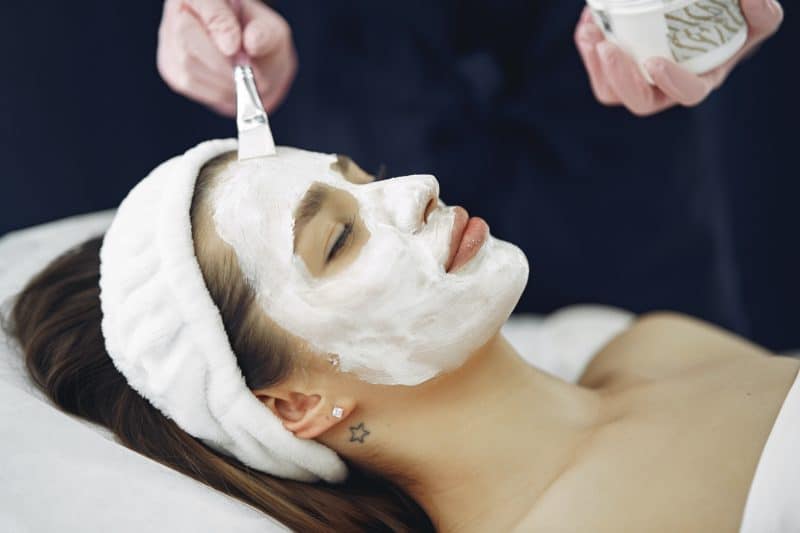
Achieving a brighter, more radiant complexion is a common skincare goal for many individuals. With a multitude of facial treatments available, choosing the right one to enhance skin tone and brightness can be overwhelming. One of the most sought-after options is skin whitening facials, designed to improve skin tone, add glow, and diminish dullness. But which facial is good for skin whitening? Understanding the various treatments, their benefits, and their safety can help you make an informed decision tailored to your skin needs.
Understanding Skin Whitening Facials
What Are Skin Whitening Facials?
Skin whitening facials are specialized treatments aimed at reducing pigmentation, dark spots, and uneven skin tone to reveal a brighter complexion. These facials typically involve exfoliation, nourishing masks, and serums infused with brightening agents. They are designed to target superficial skin layers, helping to diminish the appearance of pigmentation and promote a more uniform skin tone.
How Do Whitening Facials Work?
The process involves cleansing the skin thoroughly, followed by exfoliation to remove dead skin cells. Next, brightening agents or serums are applied to inhibit melanin production, which is responsible for pigmentation. The treatment may also include massage techniques to stimulate circulation and absorption of active ingredients. The overall goal is to enhance skin radiance and clarity while reducing dullness.
Types of Skin Whitening Facials
1. Herbal and Natural Whitening Facials
Herbal facials utilize natural ingredients like turmeric, saffron, lemon, and honey, which are known for their skin-brightening properties. These treatments are gentle and suitable for sensitive skin, offering a natural glow without harsh chemicals.
2. Chemical-Based Whitening Facials
These facials incorporate mild chemical exfoliants such as alpha hydroxy acids (AHAs) or beta hydroxy acids (BHAs) that help peel away dead skin cells, revealing fresher, brighter skin underneath. They are more effective for stubborn pigmentation but should be performed under professional supervision.
3. Light Therapy and LED Treatments
Advanced treatments like LED light therapy can stimulate collagen production and reduce pigmentation. Blue and red light therapy target specific skin concerns, providing a non-invasive way to brighten skin tone over multiple sessions.
4. Microdermabrasion and Crystal Peels
Although not solely aimed at skin whitening, procedures like microdermabrasion gently exfoliate the top skin layers, promoting cell renewal and a brighter appearance. These are often combined with other brightening agents for enhanced results.
Choosing the Right Facial for Skin Whitening
Factors to Consider
- Skin Type: Different treatments suit different skin types; sensitive skin may benefit from herbal facials, while oily or acne-prone skin might respond better to chemical exfoliants.
- Pigmentation Level: Severe pigmentation may require more intensive treatments like chemical peels or laser therapies, whereas mild dullness can be improved with herbal facials.
- Skin Sensitivity: Always opt for treatments compatible with your skin’s sensitivity to avoid irritation.
- Desired Results: Clarify your goals with a skincare professional to select a treatment that aligns with your expectations.
Consultation with a Skincare Specialist
Before proceeding with any whitening facial, a professional consultation is essential. A specialist can assess your skin condition, recommend suitable treatments, and develop a personalized skincare plan to achieve optimal results safely.
How Safe Are Whitening Facials for Dark Skin?
Safety Considerations
Whitening facials, when performed by trained professionals and using appropriate products, are generally safe for all skin tones, including dark skin. The key is selecting treatments suited to your specific skin type and concerns. Natural and herbal facials tend to be milder, reducing the risk of adverse reactions, while chemical-based treatments should be administered carefully to prevent irritation or uneven pigmentation.
Benefits of Properly Performed Whitening Facials
- Enhanced Skin Radiance: They promote a luminous glow, making the skin look healthier and more vibrant.
- Improved Skin Texture: Exfoliation and nourishment lead to smoother skin surface.
- Diminished Pigmentation: Targeted treatments can reduce dark spots and uneven tone.
- Boosted Confidence: Brighter skin often contributes to a more youthful and confident appearance.
Precautions
It is important to ensure that the treatment is performed by qualified professionals who use high-quality products and follow safety protocols. Post-treatment skincare, including sun protection and moisturization, further enhances safety and results.
Post-Facial Skincare Tips for Lasting Brightness
Maintain a Consistent Skincare Routine
Incorporate gentle cleansers, exfoliants, and brightening serums into your daily routine to sustain the effects of your facial treatments.
Protect Your Skin from Sun Damage
Apply broad-spectrum sunscreen daily to prevent pigmentation from worsening and to prolong the benefits of your whitening facial.
Stay Hydrated and Eat a Balanced Diet
Proper hydration and nutrition support healthy skin and help maintain a luminous complexion.
Regular Follow-Ups
Schedule periodic facial treatments or professional consultations to sustain results and address any new skin concerns.
Final Thoughts
Choosing the right facial for skin whitening depends on individual skin type, concerns, and goals. While numerous options are available, a personalized approach guided by a skincare professional ensures safe and effective results. Whether opting for herbal, chemical, or advanced treatments, the key lies in proper execution and post-treatment care. Remember, consistent skincare routines and sun protection are vital in maintaining a bright, healthy complexion over time.
FAQs
1. Which facial is good for skin whitening for sensitive skin?
Herbal or natural facials are typically the safest choice for sensitive skin. They use gentle, natural ingredients that help brighten the skin without causing irritation.
2. How often should I get a skin whitening facial?
Frequency depends on the type of facial and individual skin response. Usually, a session every 3 to 4 weeks allows for gradual and safe skin brightening.
3. Can whitening facials be done on all skin tones?
Yes, whitening facials can be beneficial for all skin tones, including dark skin. The treatment should be customized to suit your skin type and pigmentation level.4. Are there any long-term benefits of skin whitening facials?
Consistent skincare combined with professional facials can lead to sustained skin brightness, improved texture, and a more even skin tone over time.
In conclusion, selecting the appropriate “Which facial is good for skin whitening” involves understanding your skin’s unique needs and consulting with skincare professionals for personalized advice. When performed correctly and with proper aftercare, whitening facials can be a safe and effective way to achieve a luminous, radiant complexion.



